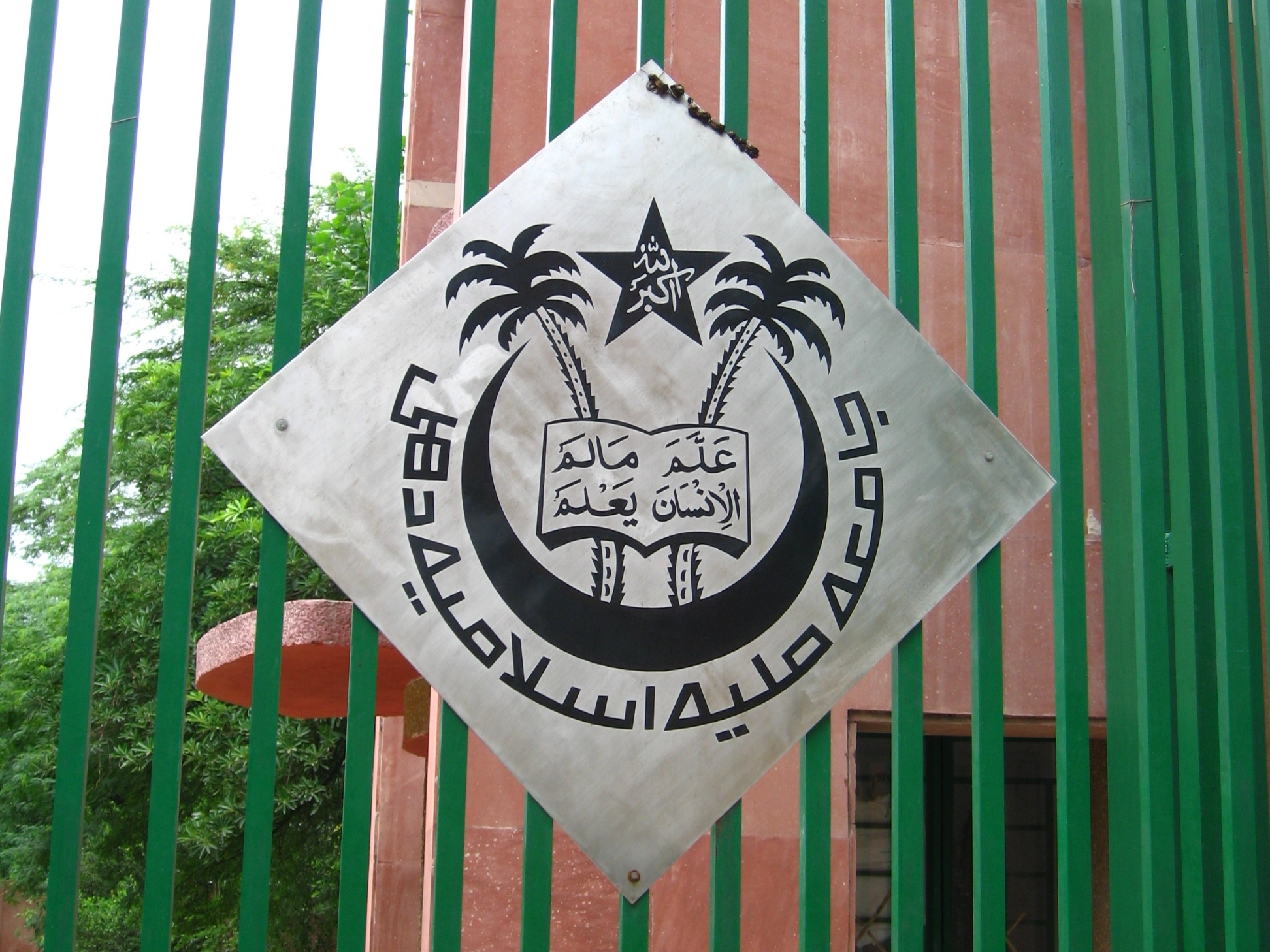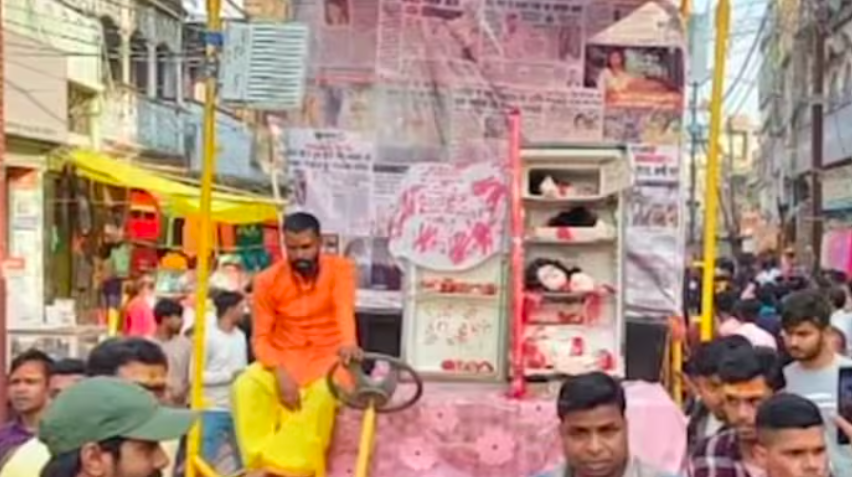BeyondHeadlines News Desk
New Delhi: Five Research & Development (R&D) proposals of faculty members from JMI have been approved for funding under MHRD-SPARC Scheme. This is highest number of approved project for any Central university. Scheme for Promotion of Academic and Research Collaboration (SPARC) Committee at its recently held meeting approved 199 Joint Research Proposals in the first round covering almost 150 foreign institutions from 24 countries.
With a view to facilitate global research networks between higher educational institutions in India with those in other global universities, Government of India had started the Global Initiative for Academic Networks (GIAN) programme in November 2015. After reviewing the functioning of GIAN, with a view to further the opportunities to improve the research ecosystem and the academic standards the Government decided to fund joint research projects between the Indian higher educational institutions and the best of global universities. Accordingly, Government has sanctioned SPARC that promotes global research collaborations.
Prof. Zahid Ashraf from Biotechnology, Prof. Bishwajeet Das from Centre for Culture, Media and Governance, Prof. Nishat Zaidi from Department of English, Dr Ahteshamul Haque from Department of Electrical Engineering and Dr Saiqa Ikram from Department of Chemistry, JMI are the faculty members from JMI whose research proposals have been approved.
Details of the R&D projects of JMI faculty members approved under UGC- SPARC.
1. Prof. Mohd. Zahid Ashraf, Centre for Biotechnology
Topic: Effect of hypoxia tissue factor-mediated
Foreign PI: Dr. Manvendra Singh, National University of Singapore (NUS)
The research proposal entitled ‘Effect of hypoxia on tissue
The intention of the research proposal is to elucidate the exact mechanism of thromboembolic complications under low oxygen environment such as high altitude. The outcomes of this project will address the issues of blood clotting disorders that largely remains obscure till date. The understanding of the tissue factor and hypoxia sensing pathways in the thromboembolic disorders will help in the formulation of new generation of drugs targeting these pathways. This would be highly beneficial for high altitude sojourns, natives highlanders, pilgrims, mountaineers, sport-persons, defence personnel posted at altitude and tourism industry and of course to those who suffer from these complications at altitude.
2. Prof. Bishwajeet Das, Centre for Media and Governance
Topic: Critical Post-Media Studies in Asia
Foreign PI: Prof. Alex Taek-Gwang Lee (Department of British and American Cultural Studies, Kyung Hee University, South Korea)
This project titled “Critical Post-Media Studies in Asia” proposes a comparative and integrated study attempting to delineate the cartography of post-media ecology in Asia, mainly India, Japan and South Korea from a non-European transversal perspective. The raison d’être is to establish an open network structure to identify the significant shifts in developed and developing societies generated by and in the algorithmic conditions of post-media. This project has got Prof Biswajit Das (Director, Centre for Culture, Media and Governance, Jamia Millia Islamia) and Prof. Alex Taek-Gwang Lee (Department of British and American Cultural Studies, Kyung Hee University, South Korea) as the principal investigators. Dr. Manoj NY (Centre for Culture, Media and Governance, JMI) and Prof. Joff Bradley (Teikyo University, Japan) will be the co-principal investigators of this two-year long project. The project proposes student and faculty exchange programs, two workshops (one to be held at Teikyo University, Japan and the other at Jamia Millia Islamia, India), special panel sessions in two international conferences (Tokyo and New Delhi), a monograph titled “Re-orienting Post Media” and a joint course work on “New Perspectives in Post Media Studies” (by the principal and co-principal investigators) at the Centre for Culture, Media and Governance, Jamia Millia Islamia as academic deliverables.
3. Prof. Nishat Zaidi, Department of English
Topic: Digital Apprehensions of Poetics
Foreign PI: Dr. Alexander Sean Pue, Michigan state University, USA
The project titled “Digital Apprehensions of Poetics” has been approved under the subtheme of Digital Humanities. The project aims to use digital technologies to understand, interpret, and annotate the poetics of Indian literatures, which circulate in digital texts, in manuscript, and as oral or musical performance. The foreign co-PIs for the project are Dr Alexander Sean Pue of the Department of Language and Linguistics of the Michigan State University and Professor Vinay Dharwadker of the Department of Comparative Literature and Folk Studies of the University of Wisconsin. The project will include researchers’ visits, material production, writing monograph, holding workshop etc.
4. Dr. Ahteshamul Haque, Department of Electrical Engineering
Topic: Resiliency and reliability of a renewable based power electronics based power system
Foreign PI: Prof. Frede Blaabjerg, Allborg University, Denmark.
Power Electronics technology is enabling to harvest optimized energy from renewable energy power systems like Photovoltaic (PV). The power electronics converters used in renewable energy based power system has achieved efficiency up to 98%, however the reliability of these converters is becoming of high concern at world level and particularly for India. PV power system based on power electronics converter needs reliable design to have low failure rates during the service life period of 25 years. To achieve so, it is important to identify the main life limiting factors of power electronics based power system and to design the reliable converters at early stage. This project work will establish a mechanism for reliability study for Indian working conditions. The joint research will benefit Researchers, Industries and Government to frame policies
5. Dr. Saiqa Ikram, Department of Chemistry, JMI
Topic: Materials derived from Biomass towards Sustainable Developments
Foreign PI: Prof. Darren Martin, The University of Queensland, Australia
Due to increasing attention for environmental protection and toxic as well as non-reusability of the materials in our day to day life, there is big threat to the existing life of all forms due to harmful activities of humans in the name of development, criminalized use of the natural resources without taking into consideration of their renewal.
This research sets out to define a new mode of participatory ecological designing of nanocellulose and nanocomposites derived from arid/biomasses, which enables participants to learn to ‘think like an ecosystem’, and to apply this to the planning of human settlements as multifunctional materials. The practical context of this research lies in a paradigm shift from innovative combination of these; and thought to generate not only structural diversity but also a plurality of property enhancements.
The objective revolves around collecting and spreading awareness about the natural resources and their applications in sustainable developments for evolving the strategies to produce the materials which are renewable, reusable, biodegradable, non-toxic and environment friendly. The information will then be converted into practical approaches in deriving the nanocellulose & derived nanocomposites meant for their utilization as multifunctional materials and training for the PG/Ph.D scholars under their curriculum.









